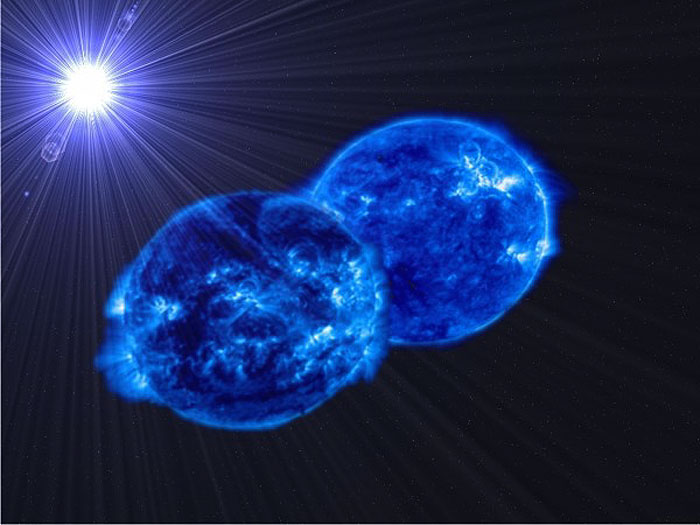.

The brightest object in a nearby star cluster, thought for decades to be a single star, is actually two massive stars in the process of merging. The pair lies about 13,000 light-years from Earth in the minor Northern Hemisphere constellation of the Giraffe. Astronomers have long known the object as MY Camelopardalis. (Camelopardalis is Latin for giraffe.) Detailed analyses of light from the object suggest that, as seen from Earth, the binary system is seen edge on, with each bright blue star eclipsing the other on a regular basis. The system, containing one star about 38 times the mass of our sun and another about 32 times our solar mass, rotates once each 28 hours, the researchers report in the December issue of Astronomy & Astrophysics. The stars, which formed only about 2 million years ago, orbit each other so closely that their outer layers are in contact (artist’s concept shown). It’s not clear how long it will take for the stars to fully merge, or what will happen when that occurs: Some models of stellar evolution suggest the merged star could explosively release a massive amount of energy, while others hint it could simply burn through its fuel more quickly than each star would on its own. Regardless, the researchers say, MY Camelopardalis is the first known example of a binary system on its way toward creating a supermassive star.
Quelle: AAAS
4880 Views
